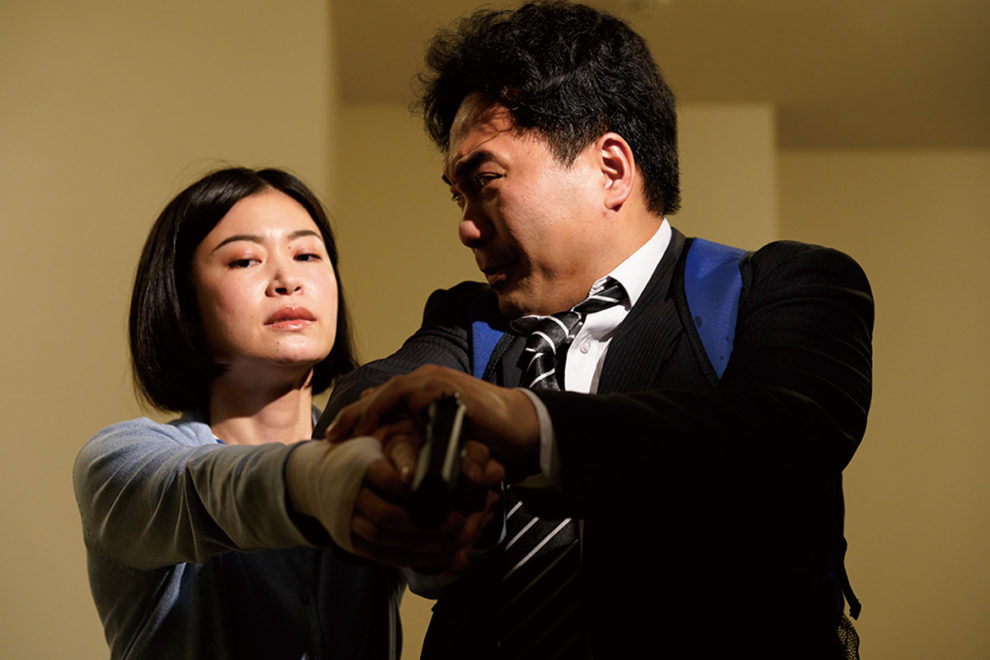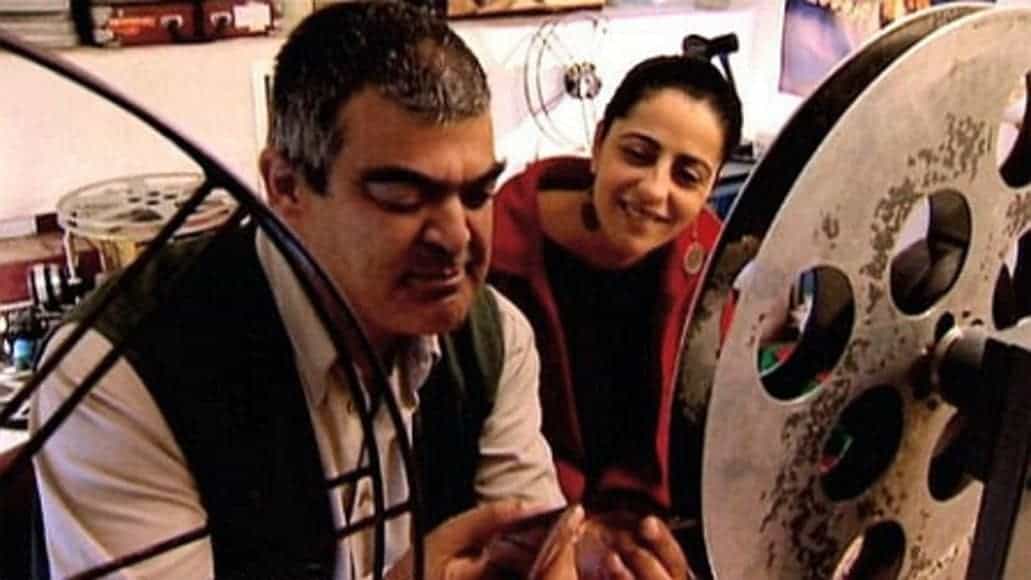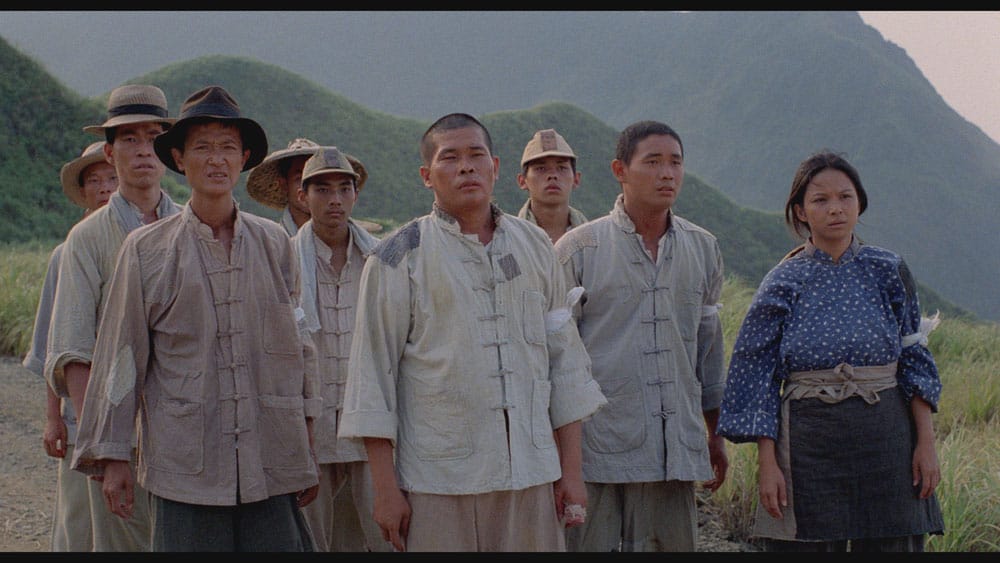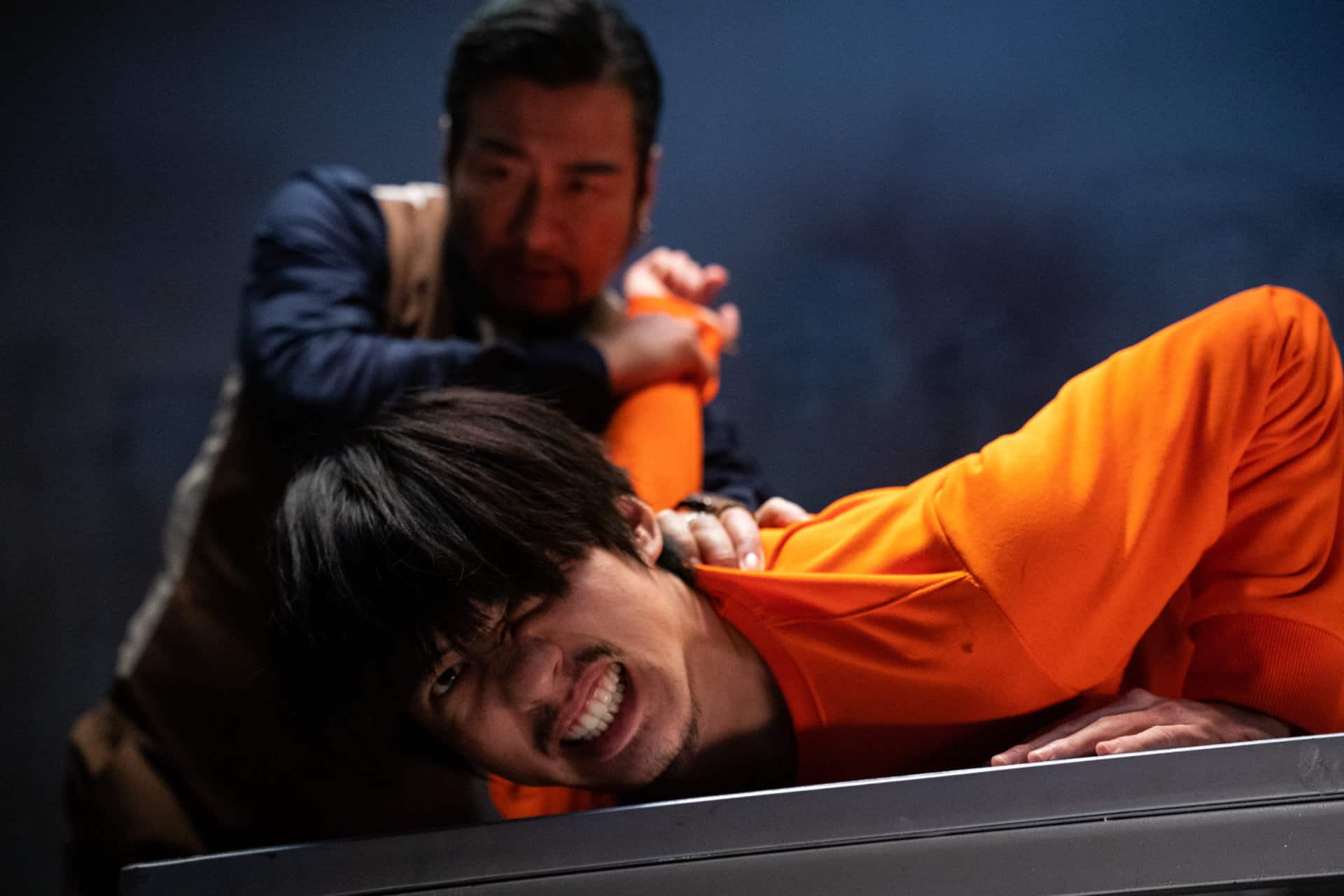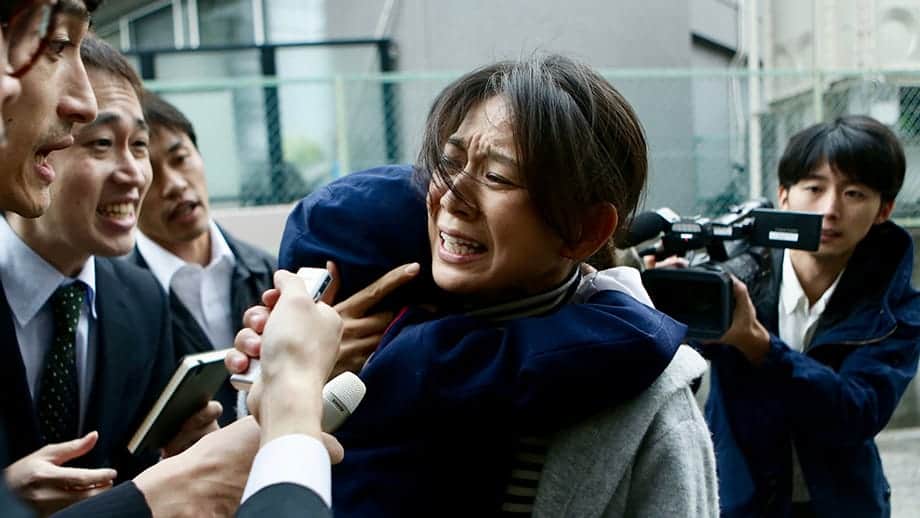Born to a Japanese mother and a Pakistani father, 28-year old M. Haris Sheikh presents his version of the Japanese social drama of the misfits, for his feature debut, in a rather interesting production he both wrote and directed.
“Howling” is screening at Osaka Asian Film Festival
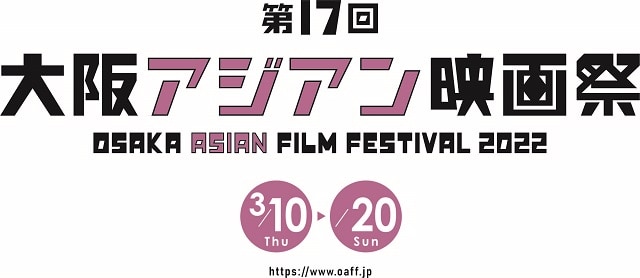
Ryuji is a 40-year-old loser. He is not particularly bright, is broke, has no girlfriend or friends, and as the movie starts, he also gets fired for sexual harrasment after stalking a female colleague. However, in his mind, he was wronged, and his fate in life is just the produce of bad luck, meaning he just needs a chance to turn it all around. Around that time, he receives an invitation to a school reunion and an offer for a date from Akane, after subscribing on a dating app. Neither proceed as he would expect, however. Akane soon asks him to kill her father, who has been molesting her for years, for 10 million yen, while at the reunion, he learns that his first love, Chisato, is now married to the bully who tormented them both in school, who is now being abusive to her. Ryuji decides to save Chisato by doing Akane's deed, with the two women also happening to live in the same building. Expectantly, and despite getting a gun from the former, things do not go as planned, while soon, two rather strange homeless people also enter the story. And the aforementioned building.
M Haris Sheikh directs a movie that seems to focus on why some people become losers and some others not, and how the concept of choice dictates the fate of people. At the same time, however, and in a rather intriguing comment that begins as soon as Ryuji agrees to do Akane's bidding, Sheikh seems to state that having a choice, and taking it, can also lead to disaster, highlighting that the concept of free will is not exactly a panacea. On the other hand, and particularly through the finale, his message becomes somewhat dull, lost inside the intermingling stories and the appearance of a number of characters whose purpose is not exactly evident, apart perhaps from moving the story towards the direction the filmmaker wanted.
If the film does not make fully sense as a whole, nevertheless, a number of its individual aspects are pretty great. The first thing one will notice is the impressive cinematography by Aya Saito, which presents a number of rather memorable scenes, and in different styles for that matter. The long shot of the café where Akane and Ryuji meet, the various ones in the lobby of the building the women live, the astonishing night shot of the old man's hut, the upside down standing homeless man and the taxi scene, are all a wonder to look, in probably the best aspect of the production. The same applies to the overall job done in the coloring by Aya Saito and the production design by Hikari Yoshioka, with the combination resulting in a visual level very rarely met in art-house/low budget productions.
In the same fashion, a number of scenes are also worth mentioning. The initial one, where Ryuji's simpleton's cunningness is highlighted in the most eloquent way, as much as the one with the job interview, the finale, but most of all the one where he is supposed to kill Akane's father will definitely stay on mind, even though for radically different reasons. At the same time, a rather unusual but highly entertaining sense of subtle humor that permeates the narrative also works quite well for the movie.
The acting, on the other hand, is somewhat of a mixed bag. Ichiro Hashimoto has his moments, particularly in his naivete, but his performance is not always convincing, with the meeting with the homeless on the street and the finale highlighting the fact, although the direction is not exactly great in those either. Sanae Kotani as Chisato gives the most convincing performance here, but the same does not apply to Yukino Takahashi as Akane, who is quite good as a victim, but her overall attitude after the violence that happens upon her seems rather misplaced, an issue that can also be attributed to the writing.
“Howling” has its issues, but in general, emerges as a very interesting film to watch, particularly for its visuals and original approach to its subject, while it is also a rather hopeful debut.


